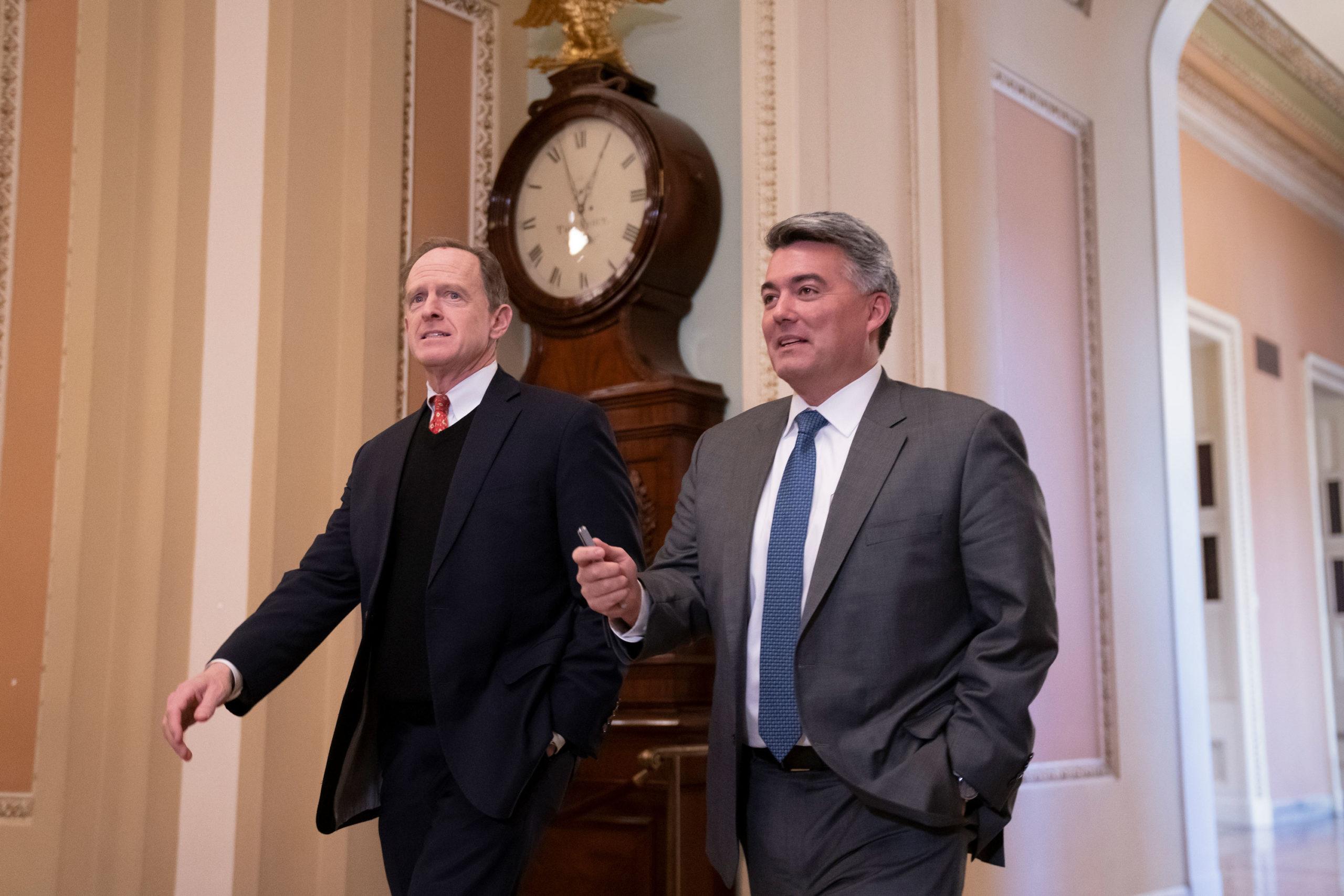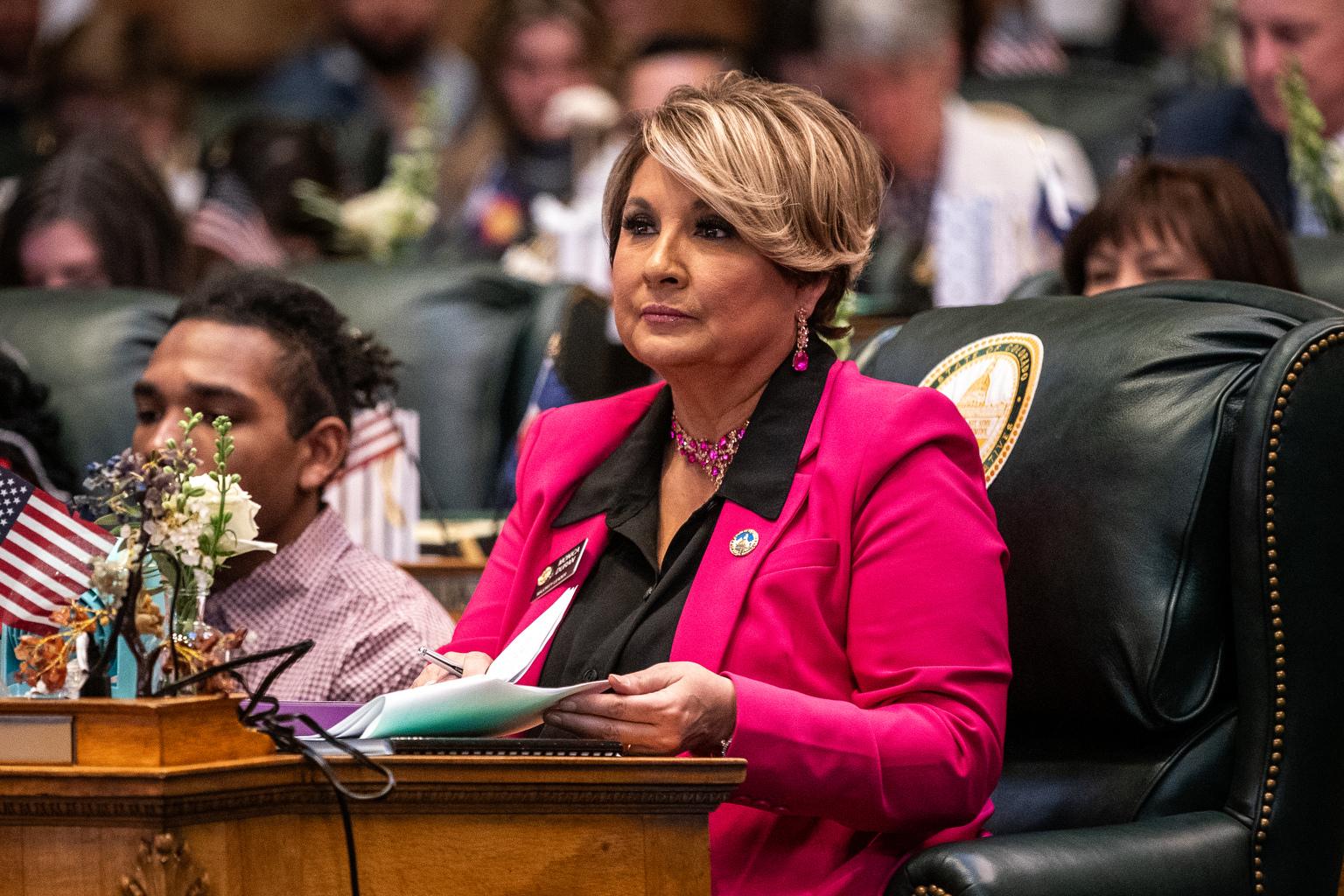
The spotlight is on the U.S. Senate as the impeachment trial continues Wednesday. But for Colorado Republican Sen. Cory Gardner, that spotlight might feel more like a heat lamp as he tries to chart a course that won’t hurt him in November.
Last week, when the articles of impeachment arrived in the Senate, Gardner sent a statement saying he is “focused entirely on fulfilling my Constitutional duty as an impartial juror and my responsibility to listen to both sides present their case.”
It was a true-to-form response for the first-term senator who, in the months since the impeachment investigation took over the Capitol, has preferred to focus on the process while saying little about the underlying facts of the impeachment case that led to this historic moment.
Early in the fall, Gardner joined the rest of the Senate in urging the release of the whistleblower complaint that started this whole investigation. But since then, he's said almost nothing about what the president is accused of doing.
In October, a group of Colorado reporters tried to pin Gardner down on a yes-or-no question: Is it wrong for the President to ask a foreign leader to investigate a potential political rival?
Over the course of almost two minutes of back and forth, yes or no were not part of Gardner’s answer. It became the type of viral moment that politicians don’t want. Many Republican Congress members have dodged this question.
For the most part, Gardner has tried to avoid talking about impeachment. In early November, as the House of Representatives voted to launch an impeachment inquiry, Garnder weighed in briefly.
“My position is to take it very seriously, the investigation taking place, and to not fall for the partisan talking points and make sure we end the political circus and actually have this done fairly and transparently,” he said.
Veteran Republican strategist Dick Wadhams gives Gardner high marks for the approach he’s taken to impeachment so far. Wadhams believes the important thing is for Gardner to come across as thoughtful, since nothing he does will change voter’s views of the situation.
“Because people who don’t like Donald Trump, will not like Donald Trump after this impeachment. People who do like him will certainly like him afterwards,” Wadhams said.
But of course, the impeachment process will have big political consequences — especially for Gardner, who's up for reelection this fall. He came into office in 2014 by unseating Democratic incumbent Mark Udall in a Republican wave year. Gardner wants to avoid that same fate in what could be another blue wave year in Colorado, if the 2018 results are any guide. That means keeping his Republican base happy without alienating the state’s largest contingent: unaffiliated voters.
“This is actually a really tough position for Gardner to find himself in,” said Seth Masket, director of the Center on American Politics at the University of Denver.
If Gardner shows anything less than full-throated support for the president, he’ll face angry Colorado Republicans.
“On the other hand, if he votes to acquit the president, that just ties him more closely to Trump and makes his own re-election a lot more challenging," Masket said.
Gardner is one of a handful of Republican senators caught in the middle of this impeachment — with moderates, institutionalists and others up for re-election in purple states. That may be why instead of talking about the president, Gardner's few comments have mostly be limited to criticizing how Democrats have handled the process.
Earlier this month, reporters caught up with Gardner outside the elevators to the Senate. When asked about the news of the day — that former National Security Advisor John Bolten had offered to testify if subpoenaed -- Gardner deflected.
“Well, is [House Speaker] Nancy [Pelosi] going to send the articles over? Is she going to follow constitutional duties?” he countered before the elevator doors closed.
In recent months, most of Gardner's comments on impeachment have come when reporters have been able to catch him on his way from one place to another. Steve Staeger with 9News approached Gardner at Denver International Airport this past Thursday.
“Are you open to hearing from more witnesses in a Senate trial?” Staeger asked.
“We have a trial and that’s where we are right now. I take my impartially duty seriously,” Gardner replied.
Monday night Gardner told CBS4 in Denver that he's considering evidence and precedent before deciding on the need for additional witnesses. "What I am going to do is study the depositions of witnesses that were taken during the impeachment in the House. I’m going to study what happened in Andrew Johnston’s hearing and Bill Clinton’s trial," he said.
So far, Gardner has shown no signs of breaking with Senate Majority Leader Mitch McConnell on any of the finer points of impeachment, including with amendments to the impeachment hearing rules on whether to call witnesses or subpoena new documents.
Democratic strategist Ted Trimpa says that puts him in a hard spot in a state where unaffiliated voters, particularly the all-important suburban women, don't hold positive views of the president. And the way the political math adds up, Gardner will need their support if he hopes to serve a second term.
“It’s almost a Hatfield-McCoy [situation], and he’s trying to make both sides happy,” Trimpa said. “The one piece that he’ll rely on is ... it’s hard not to like Cory. And will that be enough to carry him through?”
Wadhams thinks it will be. He argued that Gardner has plenty of achievements to tout with voters, from the Trump tax bill to the BLM’s move to Colorado, as well as the many bipartisan measures he's co-sponsored with Democrats. And there are still several months between the start of the impeachment trial and Election Day to convince the people who are still swayable.
Tyler Sandberg, a Republican political operative, agreed that Gardner is in between a rock and a hard place politically, but that time is on Gardner’s side.
“I think people are tiring of impeachment,” Sandberg said. “And so I think the rock and the hard place remain. But I think it becomes easier to move past because the average voter is just not paying attention day to day, and kind of exhausted by it.”
The White House's goal of a quick impeachment trial may help Gardner get past this difficult moment — and back to talking about his case to voters, and not the president's.
Editor's Note: This story has been updated to reflect comments about impeachment Gardner made to CBS4 on January 20th.









